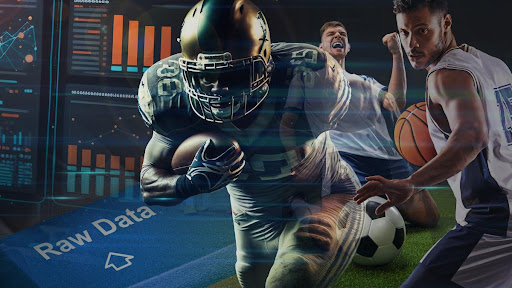Table of Contents
Like other industries, data analytics is shaping the future of sports too. Data analysis is integral in various aspects of the game, such as identifying undervalued players, evaluating efficient shots, coaching, and much more. That said, many sports include data analysts in their front office staff. The goal is to enhance the overall performance on the game day using real-time metrics.
Let’s dig deeper into the role of data analytics and metrics in sports.
Game Improvement
Strategising is a foundation for every sports team or player to compete and win against their opponents. The in-depth insights improve success rates by helping sportspersons maximize their potential.
Nowadays, sports grounds install data-tracking cameras at all angles to track every movement of each player. This large dataset gives a complete performance breakdown of their and opponent teams. With this information and predictive analysis, coaches can plan effective strategies for future events.
Further, data collected through wearable gadgets allow sports medical teams to track the health of all players. They can also modify treatment plans to speed recovery for injured athletes.
For instance, the NBA team Houston Rockets became the No.1 seed and reached the Western Conference finals in 2015 after fine-tuning their gaming strategy based on data. Even injuries couldn’t stop the players from outperforming.
Fan Analysis
The fans’ engagement is critical to making sports a revenue-generating industry. With deep analysis, marketers can create highly engaging marketing strategies during the tournaments. Sports management teams can leverage predictive analysis to estimate the number of fans attending a live match or merchandise sale.
A data analytics staff evaluates the online activities of followers to understand their patterns and behaviors. They assess what interests fans by mining sentiments from online streams. It enables them to create more engagement via social media handles before the event.
Thus, today’s social media platforms are a fantastic marketing ground to sell tickets through data-driven campaigns. Besides, team organizations can make informed decisions about their merchandise to boost revenue and fan satisfaction.
Players Selection and Scouting
Player selection is the first step to building a solid sporting team. However, several factors come into play during player scouting apart from talent.
Machine Learning techniques like statistical analysis and clustering make player selection seamless. This data-driven approach allows them to pick the right sportsperson for future events. Nowadays, almost every NBA team’s front-office executives use data analytics to build a championship-winning team.
Moreover, it reduces the traveling time for scouts to evaluate the players during the game. Coaches can now analyze players’ efficiency by watching video clips of the matches.
Hence, data analytics is now the de-facto procedure for selection committees in various sports, including soccer, football, tennis, and hockey.
Coaching & Diets
Athlete performance coaches use AI-enabled devices like heart rate monitors and GPS tools to track movement and physiology. The collected data allows coaches to create training strategies and nutrition plans that improve the players’ value.
For example, the Minnesota Timberwolves team wears Fitbit health-tracking watches during practice. This smart gadget tracks a player’s heart rate, movement, and sleep. The sports analytics team analyzes these metrics to know if training is strenuous for athletes. Hence, coaches can create personalized plans using player data to avoid fatigue during the real matchup.
Tracking the performance of athletes during practice sessions is beyond assessing their strengths. Instead, trainers can also identify weaknesses in players, like muscle soreness and sleep quality. This deep analysis provides a comprehensive picture of whether a sportsperson is responding to training. Thus, it helps athletes identify weak spots to play more cautiously on the field.
Sports Betting Predictions
Another significant use case of data analytics is in the sports betting segment. Many seasoned punters use Machine Learning models to gauge the game’s outcome. On the other hand, bookies use the data to set competitive odds for upcoming matches.
March Madness bracket is an ideal example of betting predictions made using data. Bettors fill the brackets after evaluating the performance and results during past basketball matches. So if you want to know how to bet on March Madness games successfully, start with data analysis. Deep insights about every college basketball game throughout the season will boost your chances of beating the odds.
Bottom Line
Sports analytics is here to stay. It’s a road to optimize the processes of a sports organization and athletes alike. Data metrics can’t be the ultimate source to win the matchup. After all, winning and losing are both part of this unprecedented profession. However, data can truly enable teams to improvise the game and maximize their success rate.
Data analytics provides an edge to teams by modifying their strategies based on insights about individual health and the opponent’s game.









